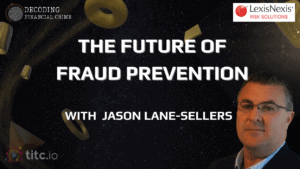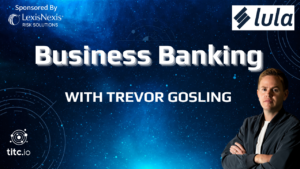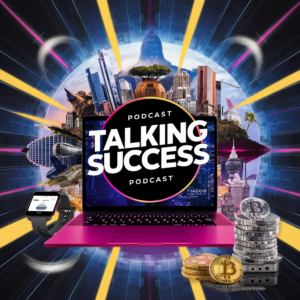Hello Entrepreneur; starting up a business is not easy. You see an opportunity, you believe you have a solution to solve a specific problem, you put together a plan that marries the solution to the problem, and you decide to step out full-time to drive that plan. Step out to build a business, not just test a market, by the way.
Starting a Business, Not a Startup
When you make that decision, you need to know you are starting up a business, NOT a startup. It’s not an experiment, it’s your life affected here. You cannot afford to think of it as a VC does, some giant lotto game that may or may not pay off. You, more than anyone else associated with you, MUST believe you can succeed in turning that plan of yours into a successful business – that’s a business that makes a profit, by the way, not a business that raises funds. Two very different things…
You will have challenges on the way there. You will face real personal and business problems that are not often discussed enough. I cannot tell you enough how tough it is to carry short-term EXPENSIVE debt or unprofitable deals or staff costs or sell into corporates that pay 6, 12 or even 18 months late.
Funding for one, monies to carry you from inception to profitability, is very difficult and not many people manage to secure that successfully and still remain in control of their business.
Firstly you will be tempted to or probably already have taken on debt via credit cards and overdrafts. Using credit cards seems an easy solution, especially when many fantastic services for startups use card payments for your subscription to them, so it seems a natural and easy choice to do this. Don’t unless you have a real plan to manage it.
To keep your business going, don’t sell equity (a share in it) too early or even at all. Consider carefully before taking on such a debt, regardless of how cute it is phrased by VCs or PEs or angel investors or your local bank. Make sure when you do that you have a full sales funnel, real business in your commercial processes, or imminent, actual, and hopefully growing revenue that can be tested for its resilience. By the way, ICOs are exactly the same thing, you raise funds from other people, and you owe other people something for their money.
Remember that in this world, there is no such thing as a free lunch; everything has a price, everything! Calculate your debt/equity affordability carefully.
Unprofitable deals often come as agreements with friends or contracts done for old customers or a favour for an investor or shareholder that end up costing you a lot, with no or little revenue tied to them. I have fallen for this too many times in my life to count. We’re nice people, right? We like doing things for people and making people happy.
Just don’t! You need to accept from the moment you step out of your salaried/familied* comfort zone that you need to make a profit to be able to eat every month. Revenues, sales, closing deals, and even ‘money-in-the-bank’ mean nothing without being profitable. Being a nice person is something we all commend, being a nice bankrupt person is not something anyone wishes on you. Make a margin big enough to cover the costs of every deal, even with friends.
(* apologies to the grammar police – this is my word for someone coming out of a family-funded life, whether as a student or secured through a trust fund)
Understanding Your Market: Public vs Corporate
Consider your market carefully. When building a solution for a problem, it is usually done from your perspective, and so it has personal processes and user experience nuances to it that you do not know about until you enter specific markets and hear customer feedback. When dealing directly with the public market, you tend to work on solutions that cater for the mass customer, the lowest common denominator across this market becomes your MVP.
As many content provider knows, registered customers mean nothing unless you can convert them to paying customers, so look to grow your active customer base versus your registered customer base. The latter may show scalability, but the former pays the bills. It is always about who buys from you or uses your service, far more than who registered to do so. Again customer intent is a wonderful thing to track, but customer revenue is by far the more important metric to focus on. Now MAKE MONEY!
When selling to the corporate market, everything changes, EVERYTHING! You are expected to change almost your entire solution to cater for a corporate’s legacy processes, regardless of whether it breaks something within your system or not. There is also no single manager within a corporate that drives those change requests for you, many many, many middle managers and possibly a senior manager here or there will weigh-in with change requests for features or changes usually totally untested by the corporate itself.
Few corporates understand how to manage startup solutions like yours, so chances are that you will fail at penetrating this market successfully unless you designed your product from the start to handle this market resiliently. A corporate requirement will be your MVP today, another tomorrow, another next month, another next term, and perhaps if the CEO has a love for your product, another next year. With a truly visionary corporate executive in control of your solution’s project, you may even get beyond your MVP. I would recommend a lot of patience and deep pockets for anyone wishing to address a corporate market. Payment is not easily forthcoming, terms are completely ignored, and usually, invoices will go perhaps as much as 6 months or more overdue.
Not scared yet?
A business needs more than you, so prepare yourself for taking on staff, wonderful warm human beings that seem the perfect candidate when looking at their CVs and meeting them the first time. You’re not an HR-experienced person? Then this becomes your next major challenge, as even seasoned HR executives will tell you how tough it is to place motivated people today in a market of resumes full of half-truths and make-belief.
Going with your gut is usually the better advice, but even there, I am the last person to tell you how to determine who is a good fit at the time and who is not. I can tell you that qualification never trumps experience, that the school leaver most often overshadows the most studied candidate, and that you should never judge a book by its cover. Talk to people who know your candidate in a similar work environment as your own. Use a reputable HR partner, like Darren Franks, for FinTech, for example, and most importantly, look for actual motivation and drive during your interactions with people. There are a lot of risks here for you starting up your team, but it is something you cannot do without unless your business is a one-man band throughout its existence.
Then worry about that margin again, and ensure you have a sales pipe filled and an agreement process well-oiled to accommodate the new lives you have suddenly become responsible for. Stand back and let them work the talent you are paying for. Don’t micromanage. Be prepared to learn from them all the time.
Loving what you do, is what keeps you going. It is a journey that makes up for a lot by the people you meet, the highs you experience, and the possibility of success whispering to you every moment of the day! If that’s your journey, too, then this is my welcome to you, fellow entrepreneur! May you experience every success you are hoping for and more!
Some transparency from me for context regarding my own experience:
I am not easy to work with, and my businesses are not always successful. In the past bad debt, poor business decisions, being too early to market, and empty promises killed a lot of opportunities. Don’t even mention being in London in 2008/9 with the global crisis happening at the time, having just launched a financial technology company! That was tough, and in 2010 we lost it all as a family, I mean everything! We lived for 6 months on the kindness of other people, and only by God’s grace did we eat every day!
So I know failure, I know it’s a shame and its stigma. The thing is, failure only has power over you if you stop there. It becomes a learning process if you decide to keep moving forward. If you do, good on you! You are back on the road to success.
Why do I do it over and again? I love the excitement of taking new ideas into markets, trying my hand at building something from nothing, not being dependent on someone else for my income, and, most importantly, knowing there is profit to be made from some new plan I have come up with. I bet you share that same thrilling anticipation!
There is a lot more to this than what I have space for here, but I can tell you this:
- I found one GREAT partner with whom I work, the amazing Prins Mhlanga – you are not an island, find like-minded people and make them family!
- I have found what excites me most, #digital – you cannot be everything to everyone! Find where things spark for you and hustle that thing!
- I love to drive my business from wherever I am #UnitedKingdom #SouthAfrica. – live your LIFE, not your business!
- And most importantly, I find I must answer to Someone higher than myself and I always count myself accountable to Him. By His Grace and His Sacrifice, I am who I am today and forever more. Jesus Christ holds me to that higher standard!
Originally published by Johan de Lange







